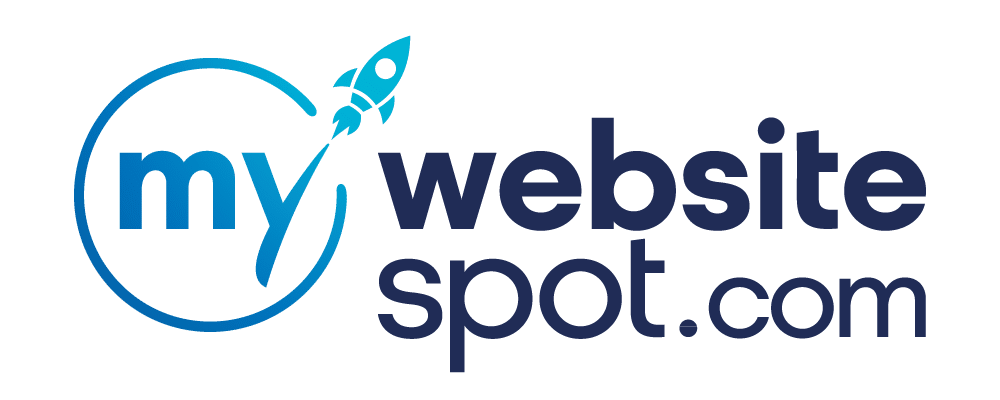Defending Your Website: Unmasking Negative SEO Attacks and Boosting Your Google Ranking
Are you a website owner who’s been tirelessly working to improve your Google ranking, only to see it stagnate or even drop unexpectedly? It’s a frustrating situation that many website owners face.
While there can be various reasons behind such setbacks, negative SEO attacks are one of the most sinister.
Negative SEO attacks are like stealthy assassins lurking in the shadows, trying to undermine your website’s credibility and visibility in search engine results. If you’re concerned about your website’s ranking and suspect foul play, this article is for you.

We’ll delve deep into negative SEO attacks, discuss what negatively affects SEO, explore methods to detect and deflect negative SEO attacks, and provide strategies to push negative search results down.
By the end of this guide, you’ll be equipped with the knowledge to safeguard your website and boost your organic traffic.
What is a Negative SEO Attack?
Negative SEO, simply put, is a set of malicious activities aimed at sabotaging your organic search visibility and ranking in search engines. Competitors, disgruntled individuals, or even automated tools carry out these attacks. Their goal is to harm your website’s reputation in the eyes of search engines.
Negative SEO attacks can take various forms, including:
- Backlink Spam and Removal
- Content Duplication
- Hacking and Overloading Servers
- Fake Reviews and Ratings
- And More
Backlink Spam and Removal
Negative SEO attackers often employ tactics such as backlink spam to harm your website’s reputation and rankings. They flood your website with low-quality, spammy backlinks from sources known for their unreliability and untrustworthiness. This flood of undesirable links triggers Google’s algorithmic penalties.
Attackers might go further by attempting to remove valuable backlinks you’ve organically acquired over time. They reach out to the websites that link to yours and work to convince these sites to disassociate from your content. This erases your digital footprint, as valuable backlinks are like votes of confidence from reputable sources.
When endorsements are removed, your website’s authority diminishes, and its chances of ranking well in search results are significantly reduced.
Content Duplication
Content remains the backbone of online visibility and organic traffic. However, this digital asset can also become a target for negative SEO attacks like content duplication.
When attackers duplicate your content, they flood the internet with multiple copies of the same material.
This confuses search engines when determining which version of the content to display in search results. Search engines may devalue your content or even penalize your website for duplicate content issues.
Hacking and Overloading Servers
Hackers are the most menacing culprits of negative SEO attacks. These attackers go beyond ethical competition and resort to illicit tactics such as
- Injecting Malicious Code
- Defacing your Website
- Altering your Content
- Stealing Sensitive Data
- Even Shutting Down your Website Entirely
These disruptive actions can lead to search engines imposing penalties on your site due to security breaches.
Additionally, negative SEO attackers may overload your servers with overwhelming traffic. By sending excessive requests to your website, they aim to push your servers beyond their capacity, resulting in server crashes and extended downtime.
Fake Reviews and Ratings
Your online reputation is a precious asset. Another tactic attackers employ is creating fake negative reviews and ratings.
Negative reviews and ratings can tarnish your brand’s online reputation. Fabricated testimonials, often posted on your Google business profile, review platforms, and social media, erode trust and credibility in the eyes of your potential customers.

Beyond SEO Attacks: Other SEO Killers
While negative SEO attacks pose a significant threat, other factors can undermine your website’s SEO efforts. Some challenges arise without malicious intent, while others can result from unethical SEO practices prioritizing quick fixes over sustainable strategies.
Recognize and proactively address potential issues to safeguard and enhance your website’s SEO performance.
Technical Issues
Technical issues can significantly impede your SEO efforts. Your site’s architecture, load speed, and user-friendliness are three areas that can cause big issues.
If your website’s structure is a tangled mess, it can make life difficult for search engines to crawl and index your content efficiently. Think of it as trying to find your way through a maze. You’ll eventually get there, but it will take longer, and you might miss important turns.
Slow loading times can result from bulky images, videos, or inefficient coding. Slow-loading pages can result in a poor user experience, leading visitors to bounce off your site in frustration. According to Think with Google (Google’s resource for digital marketing insights), the likelihood of a bounce increases by 32% when the page load time extends from 1 to 3 seconds.
Finally, consider how your website looks and functions on mobile devices. With so many people browsing on smartphones and tablets, having a mobile-unfriendly design can be a real deal-breaker. Search engines recognize this and may penalize your site if it’s not responsive to mobile users’ needs.
Low-Quality Content
Finally, consider how your website looks and functions on mobile devices. With so many people browsing on smartphones and tablets, having a mobile-unfriendly design can be a real deal-breaker. Search engines recognize this and may penalize your site if it’s not responsive to mobile users’ needs.
- Thin, irrelevant, or duplicate content can harm your website’s SEO. Google prioritizes high-quality, informative content that provides value to users.
Core updates to the Google algorithm focus on websites that meet its EEAT and YMYL guidelines. When your content lacks depth, relevance, or uniqueness, it can lead to penalties, causing your site to lose visibility in search results.
- Keyword stuffing, the practice of excessively repeating keywords in your content, is unethical and counterproductive. Search engines have evolved to detect search manipulation. Overloading your content with keywords can harm your ranking, as it’s seen as an attempt to manipulate search algorithms rather than providing valuable information to users.
- Keyword cannibalization occurs when you target the same keyword on multiple website pages. This can confuse search engines about which page should rank highest for that keyword, leading to ranking drops across the board. To maintain a clear and effective SEO strategy, review each page to target unique keywords or serve a distinct purpose.
Bad Backlinks
Backlinks, also known as inbound links, are components of SEO that indicate your website’s authority and trustworthiness. While acquiring backlinks is a legitimate and valuable SEO strategy, not all backlinks are created equal.
Low-quality or spammy backlinks can have a detrimental impact on your website’s reputation and search engine rankings.
Low-quality or spammy backlinks originate from websites or sources lacking authority, trustworthiness, and relevance to your content or industry. These often come from websites with low domain authority, engage in unethical practices, or have little connection to your website’s subject matter. Google sees these backlinks as a negative signal and lowers your credibility and authority.
Algorithm Updates
Search engines, especially Google, continually refine and update their algorithms to enhance the quality of search results. These algorithm updates are designed to provide users with the most relevant and valuable content, which can significantly impact your website’s ranking.
For instance, if your website has enjoyed a high ranking for a particular keyword due to its optimization for that term, Google’s algorithm update can drop your ranking for more relevant or authoritative content. If your content is deemed low-quality or provides a poor user experience, Google will favor websites that maintain high user engagement.

Adapting to algorithm updates involves optimizing content quality, enhancing user experience, and ensuring mobile-friendliness. Staying informed about industry trends and best practices will help you maintain and improve your website’s search engine ranking.
Regaining Lost Ground: Protecting Your Online Assets
If you’re concerned about the potential impact of negative SEO attacks on your website, take proactive steps to detect and deflect these threats. Here’s how you can safeguard your online assets:
- Regular Monitoring: Keep a vigilant eye on your website’s vital metrics, including traffic, rankings, and backlink profile. Sudden and unexplained drops or spikes in these metrics are early warning signs of a negative SEO attack.
- Google Search Console: Make it a habit to check your Google Search Console regularly for alerts related to manual penalties, suspicious activities, or security issues. Google’s notifications can provide valuable insights into potential threats.
- Backlink Audit: Conduct regular backlink audits using tools like Ahrefs or SEMrush to identify low-quality or spammy links pointing to your site. Identifying and addressing toxic backlinks is a proactive measure to protect your SEO health.
- Website Security: Invest in robust security measures to fortify your website against hacking attempts and other security threats. A secure website is less vulnerable to negative SEO tactics that involve hacking or defacement.
- Regularly Update Content: To minimize the impact of content duplication, ensure that your content remains fresh and up-to-date. Create high-quality, original, and engaging content that naturally attracts backlinks and enhances your online reputation. Utilize plagiarism detection tools to spot any instances of unauthorized content duplication.
If your website has already fallen victim to negative SEO attacks, don’t lose hope. You can take steps to recover and push those negative search results down. Here’s how:
- Link Building: Focus on building high-quality, relevant, authoritative backlinks through guest posting, outreach, and partnerships. This can help improve your website’s credibility in the eyes of search engines.
- Optimize Existing Content: Go through your existing content and optimize it for improved ranking potential. Update information, improve readability, and ensure it aligns with current SEO best practices.
- Online Reputation Management: Actively engage with your audience, encourage positive reviews, and promptly address negative feedback. A strong online reputation can counter the effects of negative SEO attacks.
- Disavow Toxic Backlinks: Use Google’s Disavow Tool to inform the search engine that you disassociate from low-quality and spammy backlinks. This can help mitigate their negative impact on your rankings.
- Leverage Social Media: Engage in social media marketing to enhance your brand’s online presence and influence. Positive social signals can contribute to improved search engine rankings.
- Seek Professional Help: Consider enlisting the expertise of an experienced SEO company like My Website Spot to aid in your recovery from negative SEO attacks. Professionals can provide tailored strategies to boost rankings and protect online assets.
By following these strategies and maintaining a vigilant approach, you can defend against negative SEO attacks and regain lost ground if your website has already been impacted.
My Website Spot: Navigating SEO Challenges with Success for Over 18 Years
Negative SEO attacks are a menacing threat in the digital landscape, capable of wreaking havoc on your website’s visibility and credibility. However, with vigilance, ethical SEO practices, and strategic actions, you can protect your website from such attacks and take steps to regain lost ground.
At My Website Spot, we’ve successfully navigated the SEO landscape for over 18 years. Our extensive experience has honed our ability to craft SEO strategies that are tailor-made to suit your industry, overcome specific obstacles, and meet your unique needs. Our ultimate goal is to help you improve your organic traffic and Google rankings, ensuring a brighter and more successful online presence.
If you’ve been frustrated by your Google ranking and suspect negative SEO may be at play, don’t hesitate to contact us.

